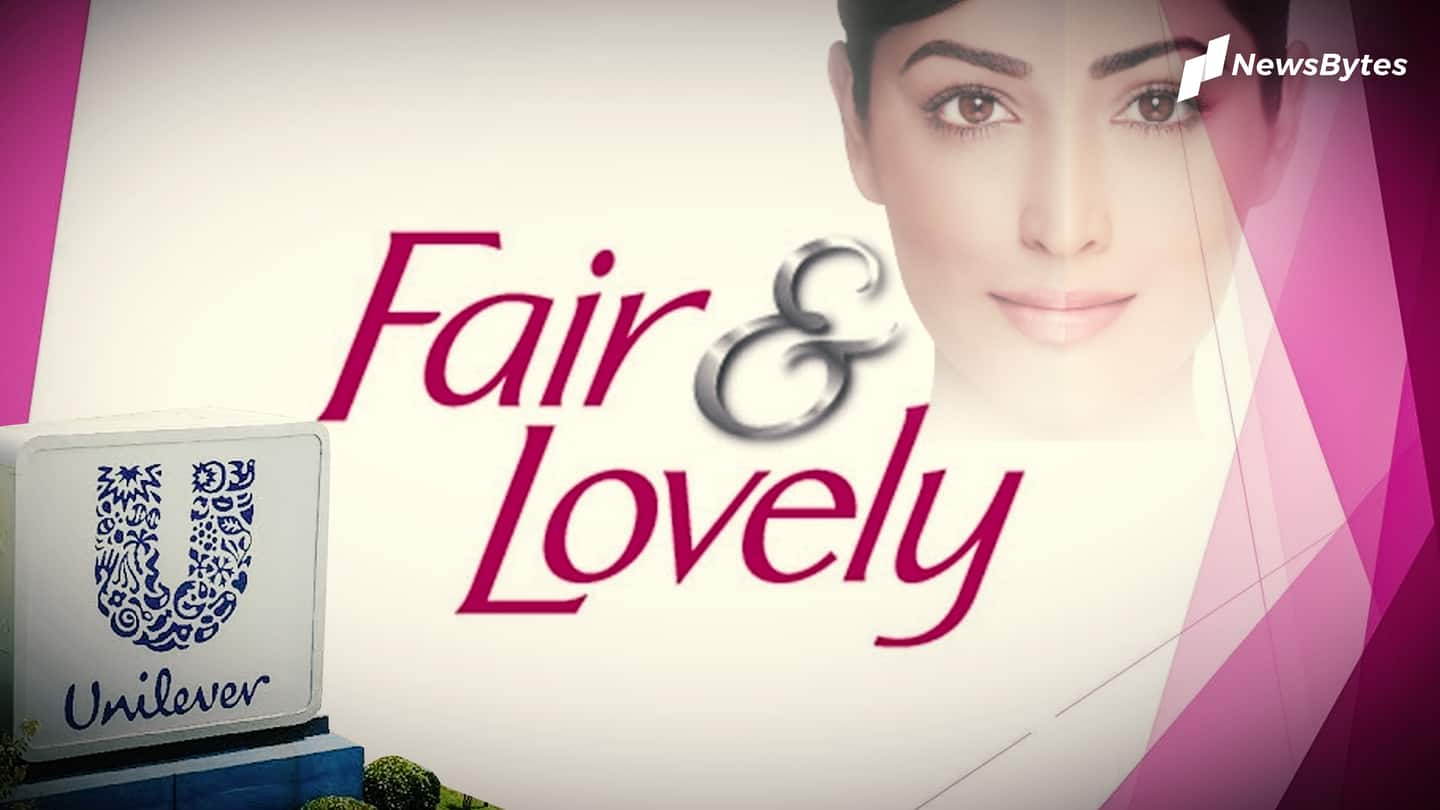
Skin cream "Fair & Lovely" to drop "Fair" from name
What's the story
Joining the bandwagon of brands that are making their products socially inclusive, the Indian unit of Unilever, Hindustan Unilever, has decided to drop "Fair" from the name of the skincare cream "Fair & Lovely," multiple reports said on Thursday. The product, quite popular among many Indian women for decades, has been receiving backlash for promoting lighter skin tones and emboldening racism.
Looking back
The killing of George Floyd sparked conversations around race, color
The conversation around skin tones gained momentum recently after the brutal murder of a Black man, George Floyd, in police custody in Minnesota, United States. As his killing sparked widespread protests, major companies refurbished their core values. Reddit co-founder Alexis Ohanian quit the company's board, asking to be replaced by a Black person. Honoring his decision, Reddit inducted Michael Seibel into the board.
J&J
Johnson & Johnson decided it won't sell fairness products
Similarly, not long ago, American giant Johnson & Johnson said it would not sell its Neutrogena Fine Fairness cream in India and the Middle East, and Clean & Clear fairness cream in India. The company said recent debates forced it to think that some products claim to make one fairer. "This was never our intention - healthy skin is beautiful skin," a spokesperson said.
Decision
Now, Unilever learned single notion of beauty is wrong
After Johnson & Johnson, Unilever said it will be changing the popular product's name. However, this development still depends on regulatory approvals. "We recognize that the use of the words 'fair', 'white' and 'light' suggest a singular ideal of beauty that we don't think is right, and we want to address this," President of Unilever's beauty and personal care division, Sunny Jain, said.
Details
Evidently, Fair & Lovely has received backlash in the past
Over the last decade or so, Fair & Lovely was sold as a product that boosts confidence among women. However, the product was slammed for adding to the obsession with fairness, but that never affected the company. Hinting that the current scenario is different, Hindustan Unilever's Chairman Sanjiv Mehta said, "We are making our skincare portfolio more inclusive... a more diverse portrayal of beauty."
Idea
But, criticism forces brands to sell same products "differently"
It was because of the criticism that fairness products received that brands opted for more subtle communication, marketing their items as one which makes the skin "glow" or "bright". In fact, Fair & Lovely's face in India, Bollywood actress Yami Gautam, also took the same argument when she was asked why she endorses the product. She said although the name stuck, advertisements have changed.
Quote
Four faces of Fair & Lovely are gone: Gautam
"Maybe the name Fair & Lovely has been retained, so it's difficult to see beyond that, but the four faces are gone. All this fairness and the kind of ads which were being made, thankfully aren't there anymore," she said before the release of her movie Bala.
Shaadi.com
An online petition forced Shaadi.com to remove skin tone filter
Earlier, the matrimonial website Shaadi.com removed a skin color filter after an online uproar. A Dallas resident, Hetal Lakhani, uploaded a petition on Change.org asking the website to do away with filters like 'Fair', 'Wheatish', and 'Dark'. She argued this demarcation hurts a person's self-esteem, mental health, and also has grave consequences like social exclusion. Shaadi.com noticed the "blind spot" and acted accordingly.
Quote
Shaadi.com said the filter didn't affect matchmaking
"We do not ask any of our users to share their skin color or tone and do not discriminate basis this. Since we do not collect this information, one cannot filter profiles basis this. That said, it was a blind spot from our side and we have removed it," the company said.